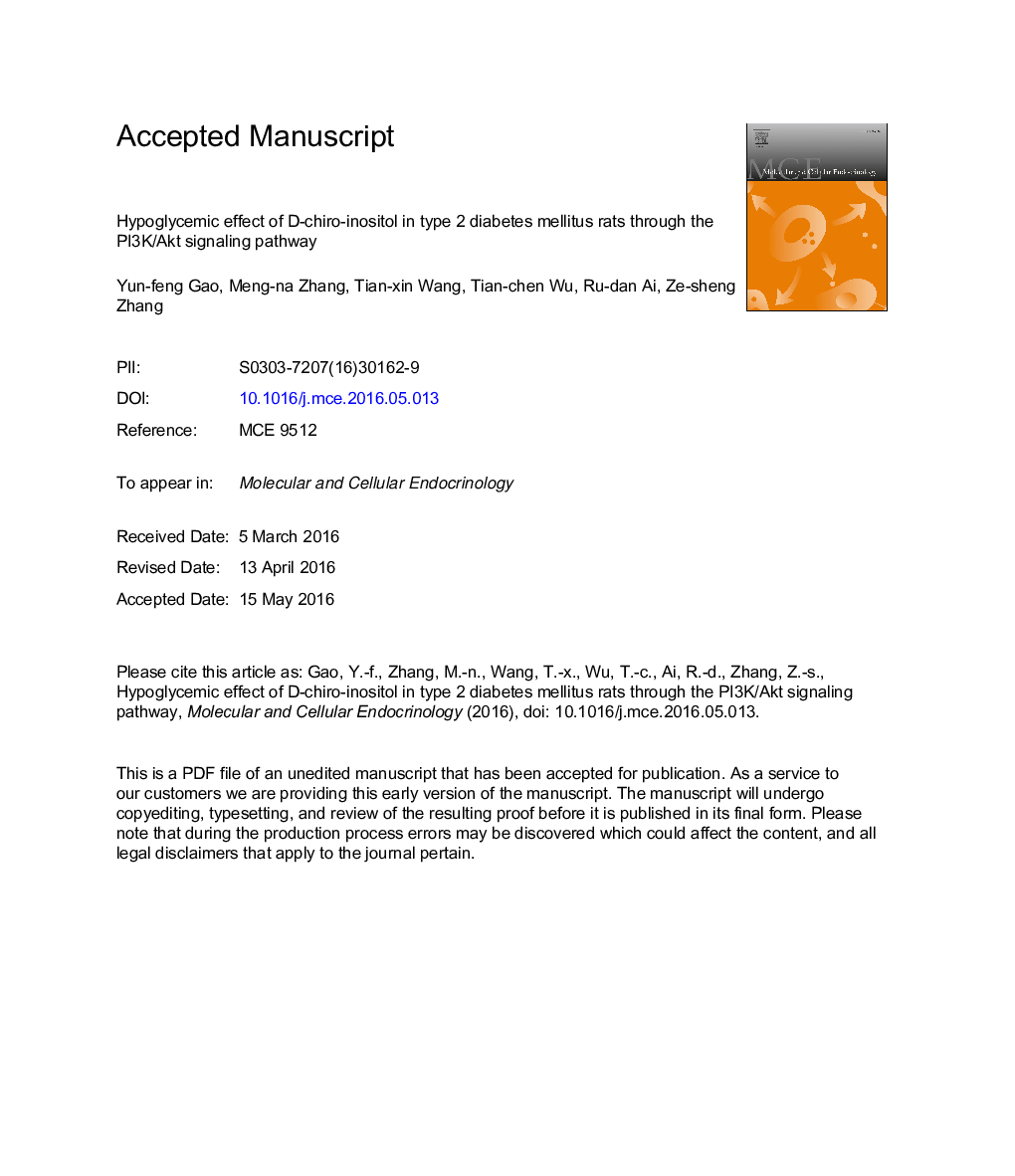| Article ID | Journal | Published Year | Pages | File Type |
|---|---|---|---|---|
| 8476738 | Molecular and Cellular Endocrinology | 2016 | 33 Pages |
Abstract
In this investigation, a model of type 2 diabetes mellitus (T2DM) was used on Sprague-Dawley (SD) rats to clarify more details of the mechanism in the therapy of T2DM. D-chiro-inositol (DCI) was administrated to the diabetic rats as two doses [30, 60 mg/(kg·body weight·day)]. The biochemical indices revealed that DCI had a positive effect on hypoglycemic activity and promoted the glycogen synthesis. The rats in DCI high-dosage group had a blood glucose reduction rate of 21.5% after 5 weeks of treatment, and had insulin content in serum about 15.3 ± 2.37 mIU/L which was significantly decreased than diabetes control group. Real-time polymerase chain reaction (RT-PCR) results revealed that DCI gave a positive regulation on glycogen synthase (GS) and protein glucose transporter-4 (Glut4). Western blotting suggested that DCI could up-regulated the expression of the phosphatidylinositol-3-kinase (PI3K) p85, PI3Kp110, GS as well as the phosphorylation of protein kinase B (Akt) both in the liver and the skeletal muscle. The results also revealed that DCI enhanced the Glut4 expression on skeletal muscle. Above all, DCI played a positive role in regulating insulin-mediated glucose uptake through the PI3K/Akt signaling pathway in T2DM rats.
Related Topics
Life Sciences
Biochemistry, Genetics and Molecular Biology
Cell Biology
Authors
Yun-feng Gao, Meng-na Zhang, Tian-xin Wang, Tian-chen Wu, Ru-dan Ai, Ze-sheng Zhang,
